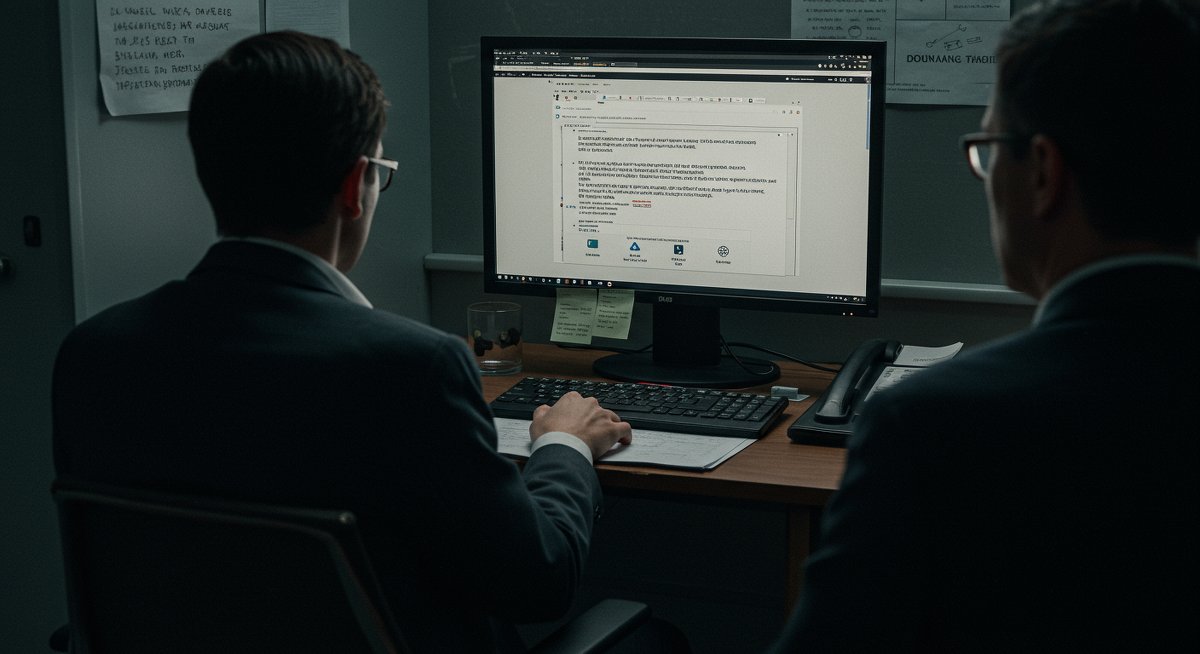Losing your passport or visa while traveling internationally is a nightmare scenario. It can lead to significant stress, delays, and potential financial setbacks. But don't panic. This guide provides a clear, step-by-step action plan to help you navigate this challenging situation, ensuring you can get back on track and continue your journey. We'll cover everything from immediate actions to long-term prevention strategies, helping you understand your rights and the resources available to you. This guide is tailored for experienced international travelers, acknowledging your need for efficiency and actionable solutions.

The Problem: What's Really Happening
When you realize your travel documents are missing, it's essential to understand the scope of the problem. It's not just about the inconvenience; it's about your identity, your ability to travel, and potentially, your financial security. Lost or stolen documents can lead to:
- Travel disruptions: Missed flights, denied boarding, and unexpected accommodation costs.
- Identity theft: Potential misuse of your passport or visa for fraudulent activities.
- Legal complications: Difficulty proving your identity to local authorities.
- Financial losses: Costs associated with document replacement, emergency travel, and potential fines.
Losing documents is more common than you think, especially in crowded tourist areas or during transit. According to a recent study, over 20,000 passports are reported lost or stolen each year by US citizens alone. This underscores the importance of being prepared and knowing how to respond swiftly. The key is to act quickly and follow a structured process.
Example: Imagine you're in Rome, ready to fly home, and discover your passport is missing. Not only do you face missing your flight, but you're also stuck in a foreign country, potentially without access to funds or a place to stay. Knowing the right steps to take immediately can make all the difference.
Example: Consider a situation in Bangkok where your visa is stolen. Beyond the immediate travel impact, you now face the risk of overstaying your visa, which could lead to fines or even detention. A rapid response, including police reporting and embassy contact, is crucial.
Expert Tip: Always carry copies of your passport, visa, and other essential documents separately from the originals. Store digital copies securely online, and share them with a trusted contact back home. This can greatly speed up the replacement process.
Common Mistakes to Avoid
- Delaying the Report: Not reporting the loss or theft to the local police and your embassy/consulate immediately.
- Panicking: Making rash decisions or failing to stay calm and organized.
- Assuming Insurance Covers Everything: Travel insurance is helpful, but it doesn't replace your documents. Understand what your policy covers.
- Ignoring Local Laws: Failing to comply with the reporting and replacement procedures of the country you're in.
Step-by-Step Solution Framework
Here's a detailed action plan to follow if you lose your passport or visa while traveling internationally:
Step 1: Report the Loss/Theft Immediately
- To the Local Police: File a police report detailing the circumstances of the loss or theft. Get a copy of the report; this is essential for replacing your documents. This step is critical for insurance claims and to prevent misuse of your documents.
- To Your Embassy/Consulate: Contact your country's embassy or consulate in the country you're visiting. They can provide guidance, issue a replacement document, and assist with emergency travel.
Step 2: Contact Your Embassy or Consulate
- Emergency Contact Information: Most embassies and consulates have a 24-hour emergency number. Find the contact information for your country’s embassy or consulate in the country you're in. Contact details can be found online, and usually, in the travel advisory of your country’s government.
- Report the Loss: Inform the embassy of the situation. They will guide you through the process of obtaining a replacement passport or visa.
- Temporary Travel Document: In some cases, the embassy can issue a temporary travel document to allow you to return home.
Step 3: Gather Necessary Documentation
- Proof of Identity: Provide any available identification, such as a driver's license or copies of your passport/visa.
- Police Report: Submit the police report you filed earlier.
- Photos: Provide passport-sized photos, as required by the embassy or consulate.
- Travel Itinerary: Present your travel itinerary to demonstrate your intended travel plans.
Step 4: Apply for a Replacement Document
- Passport Replacement: Follow the embassy’s instructions to apply for a replacement passport. This typically involves completing an application form, providing supporting documentation, and paying a fee.
- Visa Replacement: If your visa was lost or stolen, you’ll need to contact the immigration authorities in the country you’re visiting to apply for a replacement. This process varies depending on the country.
Step 5: Arrange Temporary Travel (if needed)
- Emergency Passport: An emergency passport is a temporary travel document, valid for a limited time, that allows you to return to your home country.
- Visa Alternatives: If a replacement visa is not immediately available, you may be able to obtain a temporary visa or travel permit, depending on the country's regulations.
- Coordinate with Airlines: Inform your airline about your situation and provide them with any temporary travel documents.
Example: Imagine you're a US citizen and lose your passport in Paris. First, report the loss to the local police. Then, contact the US Embassy in Paris. They'll guide you through the process of obtaining a replacement passport. You will need to fill out the DS-64 form (Statement Regarding Lost or Stolen Passport), provide a police report, proof of US citizenship (like a copy of your birth certificate or driver's license), passport photos, and pay the applicable fee. The embassy can issue an emergency passport, allowing you to return to the US while you wait for your new passport to arrive.
Example: If you are an EU citizen and lose your passport in Thailand, you will need to report the loss to the Thai police and the embassy of your home country. The embassy can issue an Emergency Travel Document (ETD) that will allow you to return to your home country or another country where you have legal residence. Make sure to keep a copy of all the documents, the police report, and the ETD.
Expert Implementation Techniques:
- Digital Backup: Keep digital copies of your passport, visa, driver’s license, and other important documents stored securely in the cloud (Google Drive, Dropbox, etc.) or on a password-protected USB drive. Share these copies with a trusted contact back home.
- Physical Copies: Carry physical photocopies of your passport and visa in a separate location from the originals. Consider laminating them for added protection.
- Contact Information: Store emergency contact information for your embassy/consulate and travel insurance provider in your phone and on a separate piece of paper.

Prevention Strategies
While you can't always prevent the loss or theft of your travel documents, you can take steps to minimize the risk and be prepared for any eventuality. Proactive measures offer peace of mind.
1. Secure Your Documents:
- Use a Money Belt or Neck Pouch: Keep your passport, visa, and other essential documents in a secure money belt or neck pouch, worn under your clothing.
- Keep Documents Separate: Don't carry all your documents in one place. Distribute copies of your passport and visa in different bags.
- Hotel Safe: When in your hotel room, store your passport and other valuables in the hotel safe.
2. Be Aware of Your Surroundings:
- Avoid Risky Areas: Be aware of your surroundings, especially in crowded tourist areas and public transportation. These are prime locations for pickpockets and theft.
- Be Cautious with Your Belongings: Keep a close eye on your bag and belongings at all times. Don't leave your passport unattended.
- Don't Flash Your Documents: Only take your passport out when necessary. Avoid drawing unnecessary attention to your documents.
3. Digital Safeguards
- Scan and Store Digitally: Scan copies of your passport, visa, and other important documents and store them securely in the cloud or on a password-protected device. Ensure you can access these copies from anywhere.
- Email Copies to Yourself: Email copies of your documents to yourself. This provides easy access if your phone is lost or stolen.
4. Travel Insurance
- Comprehensive Coverage: Purchase travel insurance that includes coverage for lost or stolen documents. This can help with document replacement fees, emergency travel, and other related expenses. Make sure it covers document replacement. Compare different travel insurance plans.
Example: Consider buying a secure, hidden money belt to keep your passport safe. These are designed to be worn under clothing and are virtually invisible to potential thieves. Many offer RFID blocking technology to prevent electronic theft of your passport information.
Example: Before your trip, make a list of your important document numbers and the contact information for your embassy or consulate. Store this list in your phone and a separate location for easy access. This will speed up the reporting and replacement process.
International Travel Considerations
- Visa Requirements: Ensure you understand the visa requirements for your destination. Keep a copy of your visa in a separate location.
- Emergency Contacts: Save the emergency contact information for your embassy or consulate in your phone, and write it down in a safe place.
- Local Laws and Procedures: Familiarize yourself with the local laws and procedures for reporting lost or stolen documents in the countries you are visiting.
- Currency Exchange: Have some local currency on hand in case you need to pay for immediate expenses while you wait for document replacement.
Next Steps in Your Travel Journey
Losing your travel documents is a stressful experience, but by following these steps, you can minimize disruptions and get back to enjoying your trip. Remember to stay calm, act quickly, and utilize the resources available to you. Proactive preparation is key to ensure your travels remain enjoyable.
- Review Your Travel Insurance Policy: Understand the coverage for lost or stolen documents and any steps you need to take to file a claim.
- Update Your Emergency Contacts: Ensure your emergency contacts are up-to-date and accessible.
- Create a Document Checklist: Prepare a checklist of essential documents to pack and keep track of during your travels.
- Share this Guide: Share this guide with friends and family who travel internationally, so they're also prepared.
By taking these steps, you'll be well-equipped to handle the unexpected and continue exploring the world with confidence.